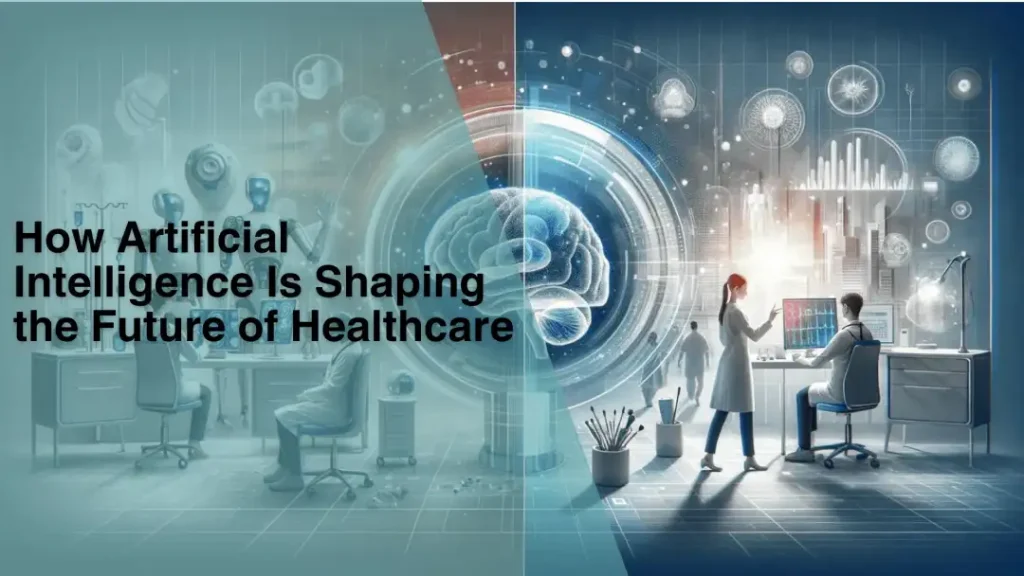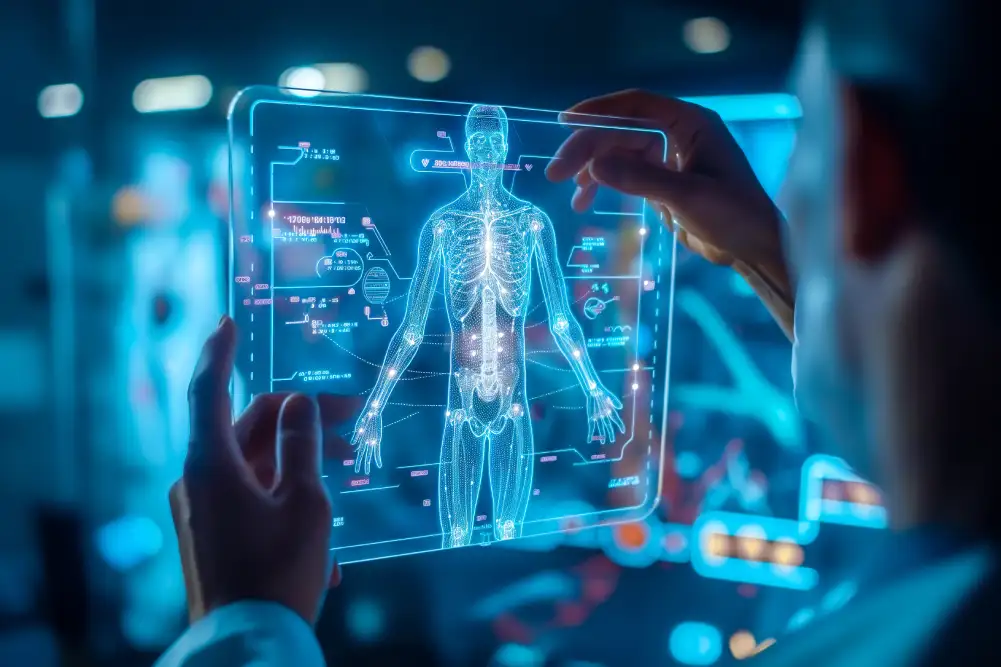
Introduction: The AI Revolution in Medicine
In recent years, artificial intelligence (AI) has moved from science fiction to real-world application—especially in healthcare. It’s helping doctors make faster and more accurate decisions, improving treatment options, and making care more efficient. With its ability to process vast amounts of data in seconds, AI is transforming how medicine is practiced across the globe.
Smarter, Faster Diagnoses
One of the most impressive uses of AI in medicine is in diagnostics. Tools powered by machine learning can analyze medical images like X-rays, MRIs, and CT scans with high accuracy. These systems can:
- Detect signs of cancer earlier
- Identify neurological disorders
- Flag unusual patterns in patient data
By helping physicians catch problems sooner, AI plays a key role in saving lives through early detection.

Customized Treatment Plans
AI is also leading the shift from generic treatments to personalized medicine. By analyzing each patient’s medical history, genetic makeup, and lifestyle, AI can suggest treatments tailored to the individual. This means:
- Better outcomes
- Fewer side effects
- More efficient recovery times
Patients receive care that truly fits their needs—not just what works for the average person.
Streamlining Day-to-Day Healthcare
Behind the scenes, AI is making hospitals and clinics run more smoothly. It can:
- Schedule appointments
- Manage electronic health records
- Automate billing and paperwork
This reduces human error and lets healthcare workers spend more time with patients instead of stuck in administrative tasks.
Speeding Up Drug Development
Traditionally, creating a new drug can take many years and cost millions. AI helps speed up this process by:
- Predicting how new drugs will react with the body
- Identifying toxic compounds early
- Simulating experiments before they happen in a lab
This leads to faster, safer, and more affordable drug development—with new treatments reaching patients sooner.
Remote Care & Health Monitoring
Thanks to AI, healthcare is no longer limited to hospitals. With the help of smart devices and wearable technology, patients can track their vital signs from home. AI systems can:
- Monitor heart rate, blood pressure, and oxygen levels
- Send real-time alerts to doctors
- Enable virtual doctor visits through telemedicine
This is especially important for people in rural areas or with limited mobility.
Mental Health Support, Anytime
AI is even helping in the area of mental health. Chatbots and virtual therapy tools are available 24/7 to support people experiencing stress, anxiety, or depression. These tools can:
- Offer conversations and coping techniques
- Detect warning signs in language or tone
- Recommend professional help when needed
For many, this means faster access to support—without stigma or delay.
Challenges Still Remain
While AI brings huge benefits, it also raises concerns. These include:
- Data security and patient privacy
- Bias in algorithms that could affect outcomes
- Lack of global regulations to guide development
Solving these challenges will require careful collaboration between doctors, engineers, and lawmakers.
Conclusion: AI Is Here to Stay
Artificial intelligence is no longer optional in modern medicine—it’s essential. It’s helping doctors diagnose faster, patients heal smarter, and the entire system operate more efficiently. As technology advances, we can expect AI to play an even bigger role in keeping people healthy, improveing access to care, and building a better future for healthcare.
Source:https://biotech.dpu.edu.in/blogs/smart-medicine-ai-healthcare-innovation
